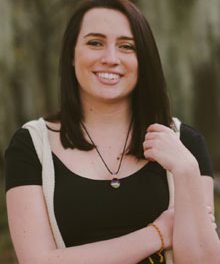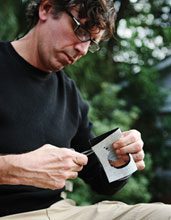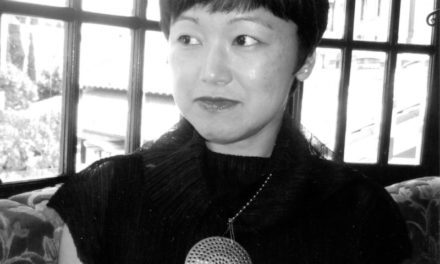 Beaufort native Anna Sheppard has taken third place in the third annual South Carolina High School Writing Contest, sponsored by The South Carolina Honors College and USC Press. Grand Judge Mary Alice Monroe judged the writings of the semi-finalists, 50 juniors and seniors, each of whom submitted two pieces of writing.
Beaufort native Anna Sheppard has taken third place in the third annual South Carolina High School Writing Contest, sponsored by The South Carolina Honors College and USC Press. Grand Judge Mary Alice Monroe judged the writings of the semi-finalists, 50 juniors and seniors, each of whom submitted two pieces of writing.
In the first one, students used a variety of genres to answer the question “How should we improve the state of South Carolina?” For the second stage of the contest, students traveled to the USC campus in Columbia and wrote an impromptu piece about a book that inspired them to change their habits or mindsets.
Sheppard’s winning poem is called “Letter to a Beaufort Businessman After He Tipped Me a Twenty for Telling Him How Much His Yogurt Cost.” The poem will appear, along with the work of the other winners and finalists, in a book coming out of USC Press in 2018.
“This is a collection of amazing students,” said Mary Alice Monroe after judging the entries. “It was my honor to read their work, and I confess very hard to judge. My goodness, such talent!”
Monroe, a New York Times bestselling novelist who lives on the South Carolina coast, will write the foreword for “Writing South Carolina: Selections from the Third High School Writing Contest,” to be published under the USC Press Young Palmetto Books imprint in 2018. Monroe follows the late Pat Conroy and Marjory Wentworth, the state’s poet laureate, as grand judge and forewordist for the “Writing South Carolina” series.
“These students are to be commended not only for their courage in tackling such a challenging subject, but for doing so in such innovative and diverse ways,” said Steven Lynn, dean of the South Carolina Honors College and founder of the contest. “Our students are concerned about racism, education, domestic violence, arts funding, child abuse, the environment, economic stability, infrastructure, and much more. That they could express their thoughts so effectively in poetry, fiction, and essays says a lot about their maturity, intelligence, creativity, and the teaching they are receiving.”
“It can be too easy to dismiss the thoughts and writings of young people, but in actuality young thinkers and writers are those who grow up to change our world,” said Jonathan Haupt, director of USC Press, which partners with the Honors College to present the contest. “We’re excited to publish the work of these students and to encourage a conversation about fostering a better state and better writing.”
Winners will receive cash awards. First-place winners receive $1,000; second-place winners receive $500; third-place winners receive $250. The first-place winner in the senior class receives the Walter Edgar Award, funded by SCHC alumnus Thad Westbrook and named for the well-known USC professor and South Carolina historian. The second-place winner receives the Dorothy S. Williams Award, which is funded by an anonymous donor and named for the late public school educator in Anderson County.
“Judging creative work is difficult and subjective,” said Aïda Rogers, who manages the contest for the SCHC and USC Press, and will edit the third volume. “To be published at such a young age is a tremendous honor. We congratulate them all.”
A 2016 graduate of the Governor’s School for the Arts and Humanities, Anna Sheppard is now attending the Honors College at the University of South Carolina in Columbia. She is no stranger to writing awards, having won an honorable mention in the Poetry Society of South Carolina Skylark Prize and runner up status in the Muriel Avelleneda Prize for Young Writers. She also received gold and silver medals for Poetry in the Scholastic National Art and Writing Competition. Her poetry, fiction and nonfiction have been published in the Adroit Journal, Interlochen Review, Five on the Fifth and other literary journals.
Says Sheppard about this latest award, “The prompt we were supposed to respond to for the competition was something along the lines of ‘What can we do to improve our state?’. So to have not only my writing recognized, but also my ideals and beliefs about my home . . . it really is a huge honor.”







